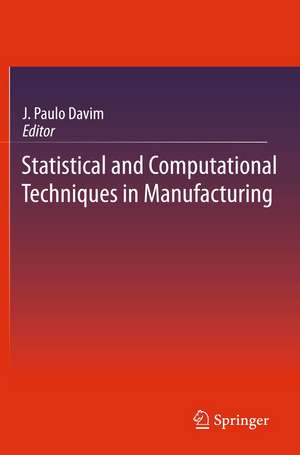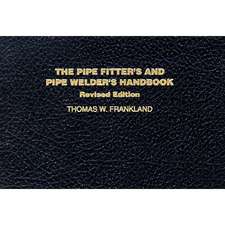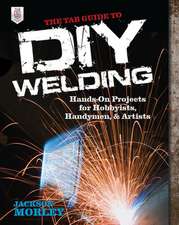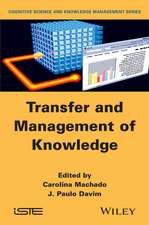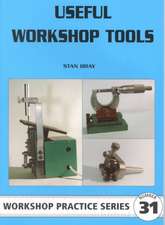Statistical and Computational Techniques in Manufacturing
Editat de J. Paulo Davimen Limba Engleză Paperback – 16 apr 2014
| Toate formatele și edițiile | Preț | Express |
|---|---|---|
| Paperback (1) | 640.88 lei 6-8 săpt. | |
| Springer Berlin, Heidelberg – 16 apr 2014 | 640.88 lei 6-8 săpt. | |
| Hardback (1) | 645.47 lei 6-8 săpt. | |
| Springer Berlin, Heidelberg – 14 mar 2012 | 645.47 lei 6-8 săpt. |
Preț: 640.88 lei
Preț vechi: 753.97 lei
-15% Nou
Puncte Express: 961
Preț estimativ în valută:
122.65€ • 127.57$ • 101.25£
122.65€ • 127.57$ • 101.25£
Carte tipărită la comandă
Livrare economică 14-28 aprilie
Preluare comenzi: 021 569.72.76
Specificații
ISBN-13: 9783642444470
ISBN-10: 3642444474
Pagini: 300
Ilustrații: XIV, 285 p. 137 illus.
Dimensiuni: 155 x 235 x 20 mm
Greutate: 0.43 kg
Ediția:2012
Editura: Springer Berlin, Heidelberg
Colecția Springer
Locul publicării:Berlin, Heidelberg, Germany
ISBN-10: 3642444474
Pagini: 300
Ilustrații: XIV, 285 p. 137 illus.
Dimensiuni: 155 x 235 x 20 mm
Greutate: 0.43 kg
Ediția:2012
Editura: Springer Berlin, Heidelberg
Colecția Springer
Locul publicării:Berlin, Heidelberg, Germany
Public țintă
ResearchCuprins
Machining.- Non traditional machining (EDM, LAM, USM, etc).-Abrasive machining.- Casting & joining.- Forming.- Powder metallurgy.- Composites & ceramics processing.- Rapid prototyping & tooling processes.- Micro and nanomanufacturing processes.- Sustainable and green manufacturing.- Manufacturing systems.- Statistical and computational techniques.- Design experiments.- Taguchi techniques.- ANOVA (Analysis of variance).- MRA (multi analysis regression).- RSM (Response surface methodology) Finite Element Method (FEM) modeling/simulation.- Artificial Neural Networks (ANNs).- Evolutionary computation.- Fuzzy logic.- Neuro-fuzzy systems.- Particle swarm optimization (PSO).- Optimization techniques of complex systems.
Notă biografică
J. Paulo Davim received his PhD degree in Mechanical Engineering from the University of Porto in 1997 and the Aggregation from the University of Coimbra in 2005. Between 1986/96, he was a lecturer at the University of Porto. Currently, he is an Aggregate Professor at the Department of Mechanical Engineering of the University of Aveiro and the Head of MACTRIB - Machining and Tribology Research Group
http://www2.mec.ua.pt/machining . He has over 24 years of teaching and research experience in manufacturing, materials and mechanical engineering, with special emphasis in Machining & Tribology. He is the Editor-in-Chief of six international journals, Guest Editor of journals, books Editor, book Series Editor and Scientific Advisory for many
international journals and conferences. Presently, he is an Editorial Board member of 15 international journals and reviewer for than 50 prestigious ISI web Science journals. In addition, he has also authored and co-authored more than 20 book chapters and 300 articles in journals and
conferences (more 150 articles in ISI Web Science, h-index 16).
Personal Web page:
http://www2.mec.ua.pt/machining/pers-davim.htm
Publications:
http://www2.mec.ua.pt/machining/Publications_Mactrib.htm
http://www2.mec.ua.pt/machining . He has over 24 years of teaching and research experience in manufacturing, materials and mechanical engineering, with special emphasis in Machining & Tribology. He is the Editor-in-Chief of six international journals, Guest Editor of journals, books Editor, book Series Editor and Scientific Advisory for many
international journals and conferences. Presently, he is an Editorial Board member of 15 international journals and reviewer for than 50 prestigious ISI web Science journals. In addition, he has also authored and co-authored more than 20 book chapters and 300 articles in journals and
conferences (more 150 articles in ISI Web Science, h-index 16).
Personal Web page:
http://www2.mec.ua.pt/machining/pers-davim.htm
Publications:
http://www2.mec.ua.pt/machining/Publications_Mactrib.htm
Textul de pe ultima copertă
In recent years, interest in developing statistical and computational techniques for applied manufacturing engineering has been increased. Today, due to the great complexity of manufacturing engineering and the high number of parameters used, conventional approaches are no longer sufficient. Therefore, in manufacturing, statistical and computational techniques have achieved several applications, namely, modelling and simulation manufacturing processes, optimization manufacturing parameters, monitoring and control, computer-aided process planning, etc. The present book aims to provide recent information on statistical and computational techniques applied in manufacturing engineering. The content is suitable for final undergraduate engineering courses or as a subject on manufacturing at the postgraduate level. This book serves as a useful reference for academics, statistical and computational science researchers, mechanical, manufacturing and industrial engineers, and professionals in industries related to manufacturing engineering.
Caracteristici
Chapters written by experts in the field Useful for teaching modern manufacturing Reference work for both students and industrial engineers
